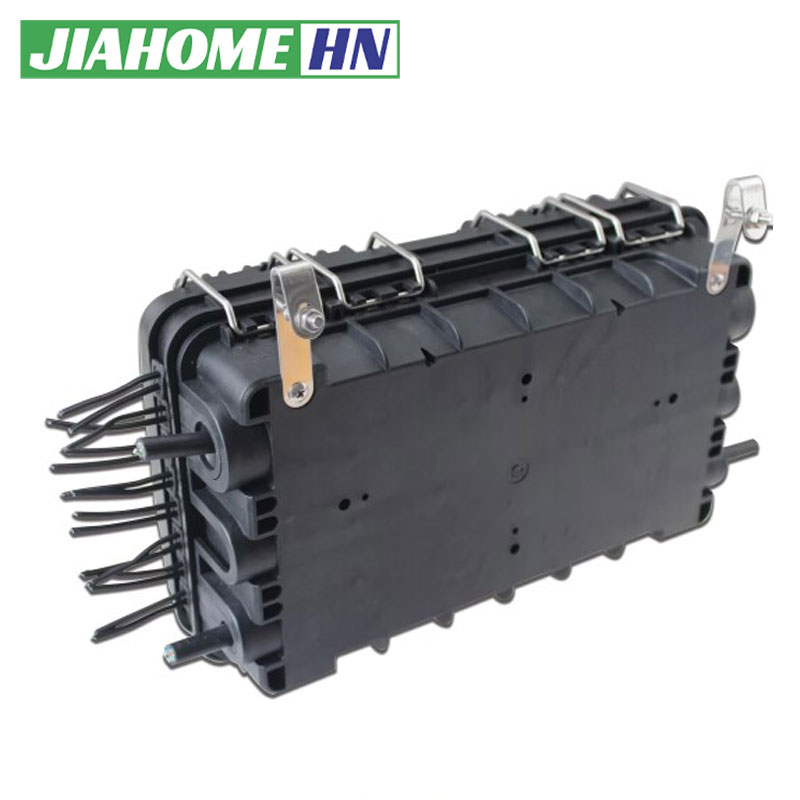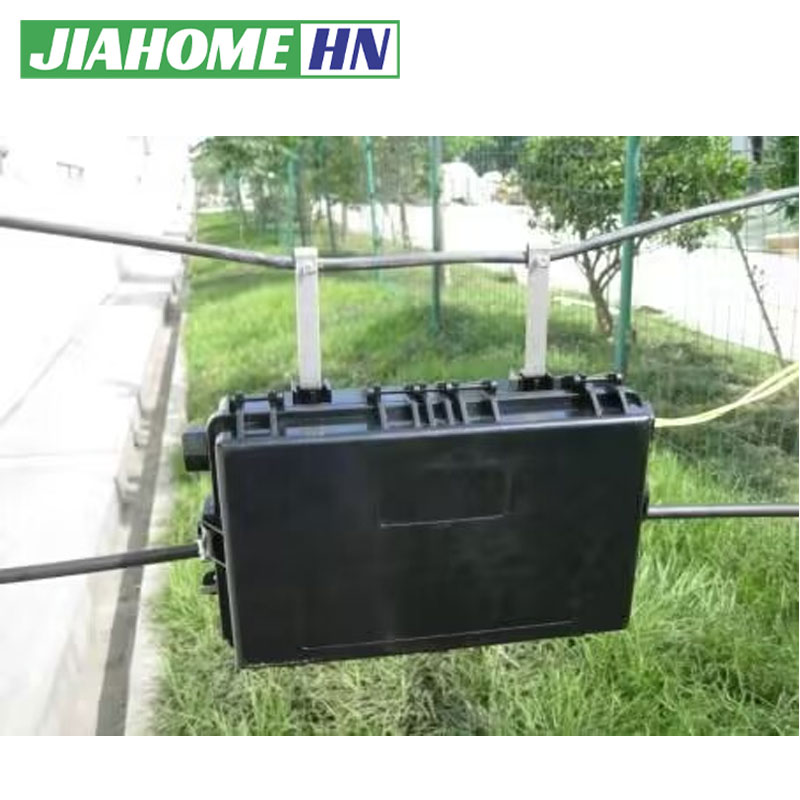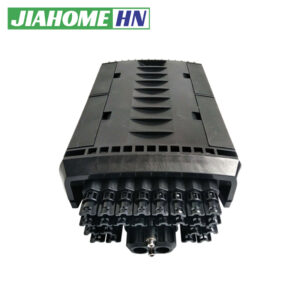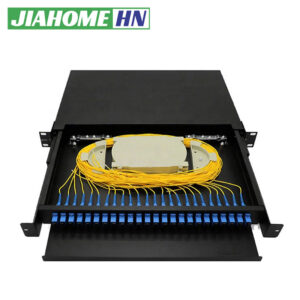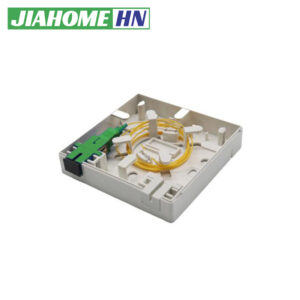Fiber Optic Distribution Box 16/96 Cores W/ PLC
DESCRIPTION:
3 feeder cable ports +3 feeder cable ports(3 in+3 out)
Up to 24 heat shrink
16 drop cable exit ports
Fiber storage and management in the splicing tray
IP68 rating
Support insertion type PLC and Mini PLC splitter
Robust design
Range of colors
描述
Fiber optic distribution box serves as a protective enclosure for splicing and distributing fiber optic cables, primarily in fiber-to-the-home (FTTH) or fiber-to-the-building (FTTB) installations. The box manages the connection between incoming and outgoing optical fibers, allowing for efficient distribution of the signal to multiple locations.
IP68 rated enclosure manufactured from high quality PP+GF, it has a special feature of draining off water by using several drainage holes.
| Code | JHF222 | |||||
| Dimensions | 295*195*110 | |||||
| Number of ports | 3 ports at both ends,8 outlet ports | |||||
| Suitable connector type | SC/ LC | |||||
| Color | Black/White/Gray | |||||
| Maximum inlet cable diameter (single port) | 16mm | |||||
| Maximum outbound cable diameter | 16mm | |||||
| IP rating | IP 68 | |||||
| Environmental Requirement | Main Technical Data | Capacity | ||||
| Working temperature | -40℃~+75℃ | Insertion loss | ≤0.2dB | 8 core | ||
| Relative humidity | ≤85℃(+30℃) | UPC return loss | ≥50dB | |||
| Atmospheric pressure | 70KPa~106KPa | APC return loss | ≥60dB | |||
Key Features of a Fiber Optic Distribution Box:
- Splicing and Termination: The FDB provides space for fiber splicing, termination, and housing of passive components, such as splitters.
- Cable Management: The box is equipped with features like cable loops, routing guides, and slots for better cable management, ensuring fibers are not damaged or bent.
- Weatherproof Protection: For outdoor use, the FDB is weatherproof, protecting the fibers from moisture, dust, UV radiation, and temperature fluctuations.
- Capacity: The distribution box can vary in size, supporting from a few fiber connections to dozens or even hundreds, depending on network requirements.
- Security: The box is usually lockable to prevent unauthorized access and tampering.
Types of Fiber Optic Distribution Boxes:
- Wall-Mounted Distribution Box: Typically used in indoor environments like server rooms, this box is mounted on walls for easy access to fiber connections.
- Pole-Mounted Distribution Box: Often found in outdoor environments, attached to poles for FTTH or FTTB deployments.
- Underground Distribution Box: Installed in manholes or other below-ground enclosures to distribute fiber in outdoor areas.
Components Inside a Fiber Optic Distribution Box:
- Fiber Splice Trays: To organize and protect splices.
- Fiber Splitters: Passive optical devices that split a single fiber into multiple outputs, enabling the distribution of signals to various locations.
- Adapter Plates: For connecting patch cables to the fibers via adapters.
- Cable Seals: Provide entry points for cables, preventing water and dust ingress.
Applications of Fiber Optic Distribution Boxes:
- Fiber-to-the-Home (FTTH) networks
- Fiber-to-the-Building (FTTB) installations
- Telecommunications networks
- Data centers
- Campus networks
Advantages:
- Scalability: Easily add or change connections as network demand grows.
- Durability: Protects fibers from environmental and physical damage.
- Organized Distribution: Allows clean and efficient organization of fibers, reducing the likelihood of signal degradation.
